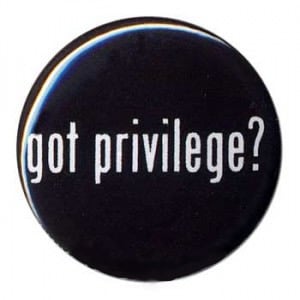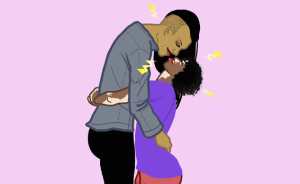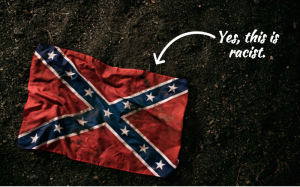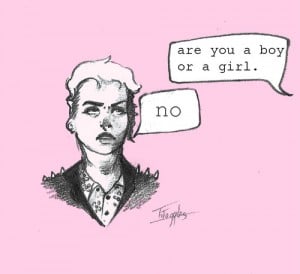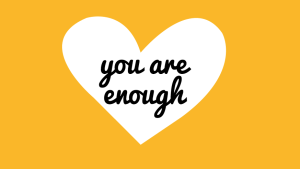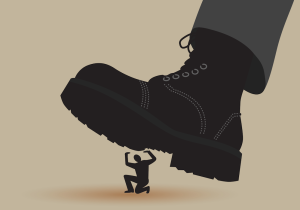Nope. That’s not a typo. Yes, I want to talk about trans people supporting other trans people.
Because at the moment, we aren’t doing the best job of it.
Fam, it’s time we sat down and had a heart-to-heart about the ways that we treat each other. In these last few years as a writer and advocate in the community, I’ve noticed some really disturbing trends about how we engage with one another.
And while in-fighting can happen in any community, this goes beyond bickering – I’ve seen some of the worst transphobia being perpetuated by folks in our own community.
Whether it’s telling other trans people how they should or shouldn’t transition, criticizing the language folks use to self-describe, or simply not believing each other when we come out, we can be our own worst enemies.
But we can do something about this.
We can have the conversation. We can renew our commitment to this community and to each other. We can be mindful of the ways that we’re upholding one another’s oppression, and call each other in.
So where do we start? Here are five ways we can better support one another.
1. Believe Trans People
I remember when I found a slew of tweets in my inbox from other trans people, accusing me of lying about being transgender.
They misgendered me, hurled unfair accusations towards me, and they began a concentrated online campaign to discredit me in this movement.
They reached out to a number of my Twitter followers, calling me a cis woman and saying that I was only pretending to be trans in order to get “Internet famous.”
Why? Because I hadn’t yet started testosterone, and in their minds, the only valid transgender people were those who were medically transitioning.
There is a lot of gatekeeping in the trans community, and it’s really heartbreaking to see. There are countless trans folks who feel that they can decide who is and isn’t transgender, and they exclude other trans people based on their own assumptions.
Sometimes, like in my case, this escalates into harassment and even violence.
I’ve experienced it firsthand many, many times. And it has hurt more than I could possibly express.
When that online campaign to discredit me began to take hold on Twitter, the timing couldn’t have been worse. As someone who had been struggling to come out to my family and was unable to access hormones, it was a painful time in my life.
Being bullied because I wasn’t on testosterone – something I desperately wanted, but couldn’t access – made an already difficult time in my life even more agonizing.
Why were hormones even relevant in the first place? Since when do they know my gender better than I do?
I often wonder: If we want to convey to the world that misgendering someone is an act of violence and that gender is a deeply personal thing that belongs to each individual, why do we do this to each other?
Why are we such hypocrites when it comes to others in our own community? Why do we ask for our gender identities to be respected, and then completely disrespect the identities of others in our community?
Rather than attacking each other and attempting to ostracize one another, we should be investing that energy into advocacy and supporting one another – not tearing each other down.
2. Don’t Place Judgments on How Other Trans People Choose to Transition (Or Not)
The reality is that transgender people are incredibly diverse and no two journeys will look exactly alike. We all have to decide, as individuals who know ourselves and our genders, what decisions are best for us and our happiness.
We also get to decide the timeline in which we make those decisions.
Some of us will pursue hormones. Some of us will not. Some of us will socially transition. Others won’t. Some of us need surgery or multiple surgeries. Others do not.
It isn’t anyone’s business but our own what we do with our bodies. And we are not more or less transgender because of our choices – because being transgender is not about the bodies that we inhabit, but rather, our sense of self and our identities
It took five years of identifying as transgender before I finally pursued hormones. Five years. This was largely due to a lot of internalized self-hatred that made it difficult to accept that I needed to medically transition.
With everything I was going through, I still endured a lot of judgment from other trans people who questioned my authenticity because I didn’t make the same choices that they did within the expected timeframe.
Can we just let other trans people make decisions about their bodies without judgment? It’s their body, after all.
3. Hold Space for Trans People Who Are Non-Binary, Non-Conforming, or Questioning
Alternatively, this could be called “not being an asshole,” but I want to dive a little deeper than that for a moment.
Not all transgender people are binary. Some of us have carved out our own unique identities and our own expressions. It doesn’t make our oppression less painful. It doesn’t make our dysphoria (if we have it) any less real. It doesn’t make our gender any less valid.
Please don’t exclude us or ostracize us from the community because we don’t conform to your arbitrary rules. Instead, support us, include us, and celebrate us.
Not all transgender people are even sure of what their gender really looks like or how it manifests in the world. Some of us are still exploring this. Some of us aren’t sure what we need. Some of us have more questions than we do answers.
Please don’t push us to the margins because we aren’t so sure. Hold us in compassion, support us, and give us the room to figure out who we are without judgment.
Sometimes trans people can be very protective over the idea of what it means to be transgender. But this needs to be said: It is oppressive to deny people the right to self-identify. It is oppressive to exclude people because they do not fit your idea of what transness should be.
And it is a real waste of energy and effort to marginalize other trans people when we could, instead, collectively endeavor towards our liberation.
4. Check Your Privilege and Advocate for All Trans People
Trans folks of privilege – those who are white, able-bodied, or have class privilege, for example – may feel tempted to place their experiences and needs at the center of this movement. But in doing so, they fail to be intersectional and fail to uplift all trans people.
This often happens when transgender people who have privilege assume that their narratives are representative of all trans people, or they fail to include diverse voices in their organizing.
Trans women of color, for example, feel the compounded effects of transphobia, misogyny, and racism. They face higher rates of violence, harassment, poverty, incarceration, suicide, and endure countless obstacles in their transitions.
Ignoring this reality and prioritizing the voices and experiences of white trans people only serves to further marginalize trans people of color, whose needs are arguably most urgent and life threatening.
Giving more visibility and resources to trans folks of privilege does not liberate all trans people – it only upholds other systems of power that already benefit those with more privilege, and it serves only a small part of our larger community.
This is why it is crucial that trans folks who have privilege are constantly being mindful of the ways that their privilege operates both within the community and outside of it.
We must acknowledge difference rather than assuming that our community is a monolith in which we are all the same. We must work collectively to ensure that the voices of all trans people – especially those who are most marginalized – can be amplified and given a platform in our movement.
A movement that only aims to benefit those who already have privilege is not a socially just movement. It simply replicates existing oppressions, rather than empowering all transgender people.
5. Call Other Trans People In
This is, perhaps, the most important piece of the puzzle. When we see other people in our community engaging in problematic or oppressive behaviors, it is important to call them in.
When I was being attacked by other trans folks for not being “trans enough,” there was a shocking amount of silence from others in the community who would privately console me, but make no attempt to stand up for me.
The harassment continued for some time because very few people stepped in and made it clear that this kind of behavior wasn’t tolerated in our community.
More cisgender people stepped up to the plate when I was being attacked than trans people did – and this is something I’ve observed time and time again when it comes to trans people failing to call in other trans people.
It’s absolutely vital that we engage in conversation with each other, on how we can better support our trans siblings and how we, as a community, can do right by each other. We need to hold one another accountable and hold each other to a higher standard than this.
My worst fear is that when cisgender people see this kind of behavior in the community, they see it as permission to behave the same way, rather than understanding that it stems from a place of our own fears and insecurities.
Instead of being passive when we see this kind of oppressive behavior in our community, it’s vital to call each other in (when we have the energy and ability to do so). Only then, by creating real accountability within the community, can we begin to heal.
***
If we don’t believe each other, support each other, uplift each other, how can we begin to create a world in which transgender people are thriving?
If we continue to hurt each other in these ways, where will trans people go to find a safe space? If we don’t have each other in this struggle, who can we count on?
The transgender community is, in so many ways, my family. It was a trans man that opened up his home to me when I first moved to the Bay Area. It was a community of trans people that embraced me when I came out. It was trans people, every step of the way, who helped me to feel empowered as I began to uncover my truth.
I would not be who I am today without the love and support of this community.
That’s why I’m so passionate about trans people supporting other trans people – not because I hate or reject our community, but because I see the difference that this support makes in each of our lives.
I believe in the power of our community. And that’s exactly why I believe it’s important that we are accountable to each other and that we strive to be a safe and supportive space for all trans people.
It’s my hope that we can and will do better. It starts with each and every one of us. And it must begin now.
[do_widget id=’text-101′]
Sam Dylan Finch is a Contributing Writer for Everyday Feminism. He is queer writer, activist, and educator based in the San Francisco Bay Area. In addition to his work at Everyday Feminism, he is also the founder of Let’s Queer Things Up!, his hella queer and very awesome blog. You can learn more about him here and read his articles here. Follow him on Twitter @samdylanfinch.
Search our 3000+ articles!
Read our articles about:
Our online racial justice training
Used by hundreds of universities, non-profits, and businesses.
Click to learn more







